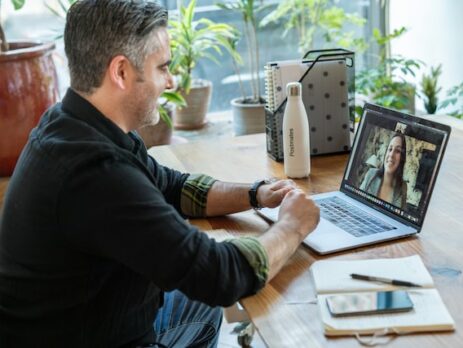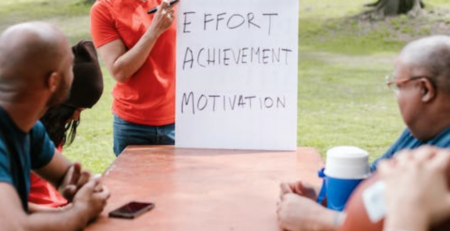A Guide to Successful Video Interviews
The way employers not only do business but also how to conduct interviews has changed in recent years. Telephone and video interviews have become increasingly more popular than in-person interviews.
Because of this, both employers and candidates alike need to ensure that they know how to navigate the ins and outs of this new normal. As video interviews are requested more often, you must learn what that means for you.
Wondering what makes a successful video interview? Keep reading to find out.
What is a Video Interview?
The video interview has begun to replace the in-person interview in many businesses at least for many reasons. The recent pandemic has changed the way many people conduct business and interviewing is no exception to this.
The video interview is exactly what it sounds like, an interview that is done through conferencing software such as Zoom. It is an opportunity for employers and candidates to meet “face-to-face” without being in the same room.
Not only did the pandemic make people think outside the box when it comes to normal business processes, but it made it necessary to use technology they never thought of before. While companies such as Zoom, Google Hangouts, and more existed before, it was not something that was widely used.
During a video interview, an employer can meet with potential employees virtually instead of bringing them into the office. This has opened the door to making this the norm for many initial interview processes.

What Types of Businesses Utilize the Video Interview Process?
When it comes to conducting interviews through video conferencing tools, many people think that it may just be technologically savvy companies who do this. This, however, is not the case since a wide variety of businesses are using the same tools.
Keep in mind that when the pandemic hit, there was no other way for people to conduct business other than jumping on a video call with them. This taught many businesses that they could save time and money by using video conferencing for more processes.
In most cases, interviewing candidates can be a grueling process that can take several weeks to complete. Having a variety of people coming in and out of your business can, at times, interrupt the daily operations of a company.
This is where video interviewing can come in handy by making it unnecessary to have other people come into the office. This is especially true for the initial interview processes where you will likely narrow the list of qualified candidates to a very limited number.
Why Should You Consider the Video Interview?
As you are going through the process of setting up interviews for your open positions, you must consider the methods you use. Gone are the days when you have to bring someone in and sit in the uncomfortable silence that occurs before the interview begins.
Using video conferencing tools such as Zoom can take away much of the awkwardness that comes with meeting new people. This is because instead of standing face to face with someone, you have some distance which can help you to feel comfortable.
Considering whether or not you should use video interviews depends entirely on your feelings about technology. While these types of interviews sound like they would make the job much easier, in some ways they are more difficult.
With a video interview, you have to ensure that not only are you ready for the interview itself but that your technology is also set up. But at the same time, while technology is vital to the video interview, it is still a great way to meet candidates initially.
Keep in mind that today, using the video interview process can be a great way to narrow down the options of candidates. This format can take the place of sitting down with many interviewees in your office and then having the most qualified candidates come back for second interviews.
What Makes a Successful Video Interview?
Many things will make or break a successful video interview that you should be aware of. While many of these same things could happen during a face-to-face interview, many factors apply to only the virtual interview.
Here are a few factors you should consider when you are conducting video interviews:
1. Prepare for the interview
Nothing makes any kind of interview more successful than being prepared. For a video interview, this entails a bit more than just researching the company and the position that is being discussed.
If you are the interviewer, you should ensure that you have done everything you can to make sure things run smoothly. This includes making sure that the technology is working correctly, and that you have set the meeting up accurately.
For those interviewees, preparing means that not only should you do your research on the company itself, but you should also make sure that your technology is working. You should also prepare your family or others that you live with that you will be interviewing so they are not disrupted.
2. Show up on time
It is important for both parties involved to ensure that they are showing up to the interview on time. This shows the other person that you respect their time and are completely willing to be present.
Five minutes before the meeting is not the best time to ensure that your internet or video conferencing software is compatible with your computer. This should have been done well in advance of the meeting.
Nothing makes a worse impression on either side as when one of the parties is late for the interview. Keep in mind that a first interview is about making a good first impression on both sides of the table.
3. Take the time to greetings
While you should value each other’s time when it comes to the interview, there should always be a few minutes for greeting. In most cases, this helps both parties to feel a bit more comfortable and kicks the meeting off on a positive note.
Keep in mind that if you were having the meeting face-to-face, you would likely have a few minutes in the beginning when everyone is getting settled with introductions. Including this as a part of your video interviews is equally important.
4. Speak up if something is not working
During a video interview, you must speak up if something is not working as it should be. There is nothing worse than one party asking a question to be greeted with silence because the other person cannot hear.
If the other person’s audio is fading in and out, make sure to point this out to them since one of you could be having internet connectivity issues. It is always better to acknowledge if you are having trouble seeing or hearing them rather than trying to keep up and missing half of the interview.
5. Dress for Success
Just because the interview is virtual does not mean that it is any less important than a face-to-face interview. Because of this, you should always dress professionally when you are in a video interview.
The same is true for whether you are the interviewer or the interviewee, you should dress to show the other person that you are taking this seriously. While this is more true for the person being interviewed, it is equally important for the interviewer to show professionalism.
How to Prepare for Your Video Interview
Since having a successful video interview is the ultimate goal, you will want to ensure that you are completely prepared. This means that if you are the one being interviewed, you will need to do a bit more than just researching the company itself.
It is always encouraged for candidates to make sure that they have taken the time to research the company for many reasons. Some reasons include becoming familiar with the company itself, learning what values are important to the company, and understanding what they do.
When you are having a video interview, it is also important to make sure you are prepared in other ways as well. These factors include setting up your interview space, making sure your technology works, installing specific software, and letting others know about the meeting.
Let’s take a look at some of these factors.
1. Setting up your interview space
Just as if you were preparing to work from home or in an office setting, you would prepare the space you will be working in before you start. This is because you need to ensure that you have everything you need to be successful.
Doing a video interview means that the other person is going to be able to see into your interview space. This means that if your desk is set up in your bedroom, living room, or kitchen, you need to ensure the background is not distracting.
2. Set up your technology
Since you are preparing for a video interview, you need to ensure that your computer can do this. That means you need to see if you have a working webcam, speakers, microphone, and the bandwidth required.
While most newer computers, especially laptops, come equipped with webcams, speakers, and microphones built in, some need external equipment to function properly. You should also check to make sure that your internet can handle the bandwidth it may require to conduct the interview.
3. Install video conferencing software
Depending on what the company you are interviewing is using, you will most likely need to install this on your computer. While some of these tools work via the internet, some require that you download the software to your computer first.
4. Prepare for fewer distractions
If you are doing your video interview from home, you most likely need to let others you live with know that this is happening. This is because the last thing you want is for someone to bombard you amid your interview.
It is also best to let your family or roommates know that you will be having an interview and when so they can either be out of the house or can ensure they will not disturb you. Although you cannot prepare for all scenarios, you may be able to reduce the likelihood.

What Are the Downsides of the Video Interview and How Can You Overcome Them?
No matter how hard you try to prepare for all possible scenarios that could go wrong, there are many more that can pop up. It is important to keep in mind that this can happen whether your interview is in person or via video conference.
One of the most common downsides of doing video interviews is that sometimes technology just does not work. No matter how well you prepare your computer and your workspace, sometimes at the worst possible time, your internet connection can be disrupted.
If this occurs, try joining back into the meeting as soon as your internet is back up. If it is within a few seconds or minutes, likely, the other party is still on the call. If it is taking longer than expected, you should give them a call to let them know what is going on.
Another downside to doing video interviews is that it can be harder to make certain judgments that are necessary when ensuring that you are hiring the right candidate. Additionally, for the candidate, it can be difficult to tell whether or not the manager is as sincere as they are coming across.
The bottom line is that you have to keep in mind that even if you were having an interview face-to-face, it is likely that you could misjudge the other person. The best thing you can do during a video interview is to make sure that you are being as sincere as possible.
Ready to Conduct Your First Video Interview?
After reading all of the tips and advice about setting up and preparing for a successful video interview, you should be ready to line up your first one. While you may not be sure about using this type of interview or not, there is nothing wrong with trying it out before you rule it out.
If you are looking for further information about video interviewing and conferencing before you schedule your first one, you may want to check out this article for more information.












